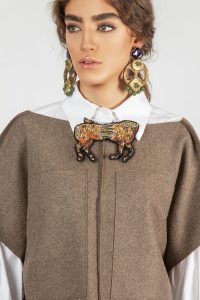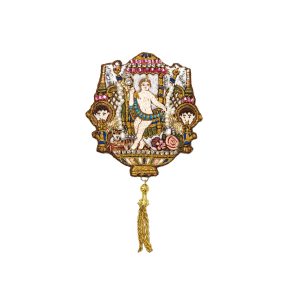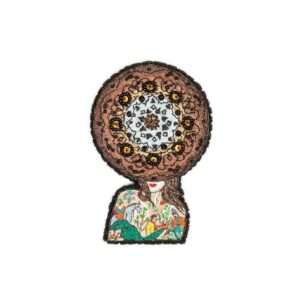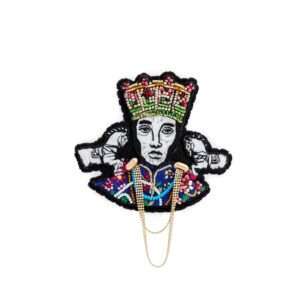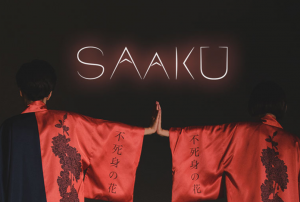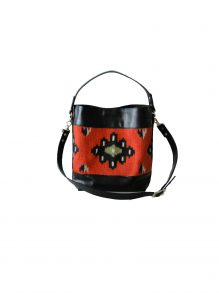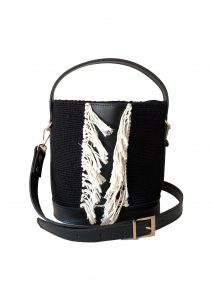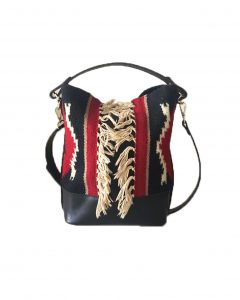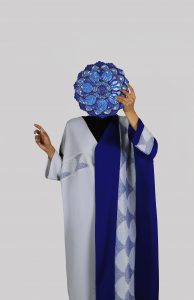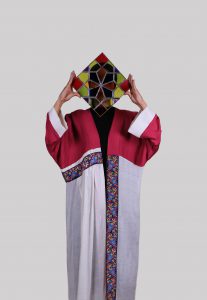By: Ghazal Mostafa
Azadeh Aiden
Azadeh Aiden,founder of fashion label Aiden, is a 34-year-old mother of two who studied business administration. Aiden is a customized accessories label which embraces change with each and every collection, and aims to improve and spread happiness through its customized, hand embroidered accessories.
It all began when fashion designer Huda Al Nuaimi’s designs inspired Azadeh Aiden and she decided to fulfill her dream of entering the fashion industry. She has been working on her handcrafted embroidery designs line since 2018.
Her inspiration comes from women, including, as she puts it, “myself, the woman I want to be and the women I encounter.” She finds it fascinating that women can be powerful and sensitive at the same time.
She has a strong attachment to her employees and loves to provide an environment for other talented women to grow professionally.
Azadeh Aiden wants to continue to push the boundaries of her company and take it to the next level.
MARYAM YAZDANPANAH
Maryam Yazdanpanah is a post graduate from RMIT University in Australia with a master’s degree in hematology. She moved back to Tehran after living abroad for seven years to pursue a career in line with her passion for art.
In order to combine art and science she completed a fashion design course to be able to link her scientific vision with her passion for art and fashion.
Fashion design will be a way to give life to her ideas. She wants people to sense and experience her designs while wearing them.
She is currently running a young and self-funded ever growing label called “SAAKU.”
Each season, the very essence of SAAKU’s designs draws from the fascinating beauty that is etched in every corner of the two worlds of nature and science such as; botany, the growth and the formation of fungi and the human body; the ordered disorders, mesmerizing normal and pathological tissue patterns, to name a few.
Whether it is touching on a genetic disorder, a socio-psychological issue, philosophical and emotional challenges or environmental concerns, SAAKU is always a bearer of an enlightening message and creator of an unforgettable experience.
Every design carries a wearable message for its audiences. The collective voice of the collection is usually amplified and echoed through a conceptual sculptural piece.
Nogol Jalali
Nogol Jalali is an Iranian designer who has made quite a name for herself when it comes to her handbag designs. Nogol used to explore all kinds of materials to create her vision when she was very little. Her passion for art and design inspired her to attend a graduate program in accessories design at Domus Academy, founded by Gianfranco Ferrè in Milan, Italy.
After successfully completing her master’s degree, she had the opportunity to work closely with Diego Dolcini, Moreschi, Daniela Puppa, Fabio Cammarata and Frankie Morello, through whom she learned the practical foundations of the fashion industry.
In 2007, Nogol established her own brand called NONO, which is best recognized for its glamorous, comfortable, spacious and lightweight bags, all handcrafted with special attention to detail. In 2015, she introduced her new line
of Kilim Bags, rich in a variety of colors and designs, by integrating traditional Iranian weaving techniques and patterns into modern practical designs. The brand proudly supports a network of artisanal weavers, almost all of whom are women who work tirelessly to not only craft beautiful Kilims, but also to support their entire families.
ZAHRA ZARINMEHR
Zahra Zarrinmehr, born June 1994, graduated with a master’s degree in architecture. She has been working in the field of fashion since 2017 and is currently operating under her own brand, ZiZi.
Since architecture and clothing design are the reflection of a society’s identity and culture, her brand has tried to show Iran’s culture and civilization in its new collection, which is inspired by the traditional clothes and architecture of each region.
In Zarrinmehr’s opinion, by designing these traditionally inspired clothes, we can create an outfit that is both in line with the interactions of today’s society and that shows each province’s local costume. Therefore, the purpose of this collection is to update and modernize local clothing and make them attractive to younger generations, who are more inclined to wear fashionable Western clothes.
ZiZi’s motto is:
Iranian women’s clothing is not only a covering It is also an artistic expression and representation of her in the modern world.
Amin Ajdari
Amin Ajdari studied computer science in Tehran, however he always leaned towards the design aspect of the degree. With a general interest in design, sculpting, printmaking, photography and playing the violin, he decided to pursue a degree in fashion design in Milan, Italy.
For his dissertation, Ajdari brought to life the traditional and one of a kind clothes shepherds would wear in Iran with influences from traditional architecture of his ancestral land. He called the project “Beyond the Borders.” Soon after, he returned to Iran with the hope of bringing back what he had learned about design in Europe.
By recruiting a group of designers who were open-minded and came from different backgrounds, Panje was created.
For the designers of Panje, it was very important to start off on the right foot. A lot of the inspiration for their first collection was drawn from the ’60s European styles and Kurdish women’s clothes. The collection was called “The Far and Ambiguous Place of Imagination” and was showcased in Vatan concept store. Panje’s second collection was inspired by the forms and lines of the painting “Lino Lago.” The collection, which used denim for its pieces, was called “Shore of the Sky’‘ and was showcased in Comode concept store.
For PANJE, an article of clothing explains the ways of the 21st century.
It is important that the people wearing their clothes like and believe in themselves. This is why Panje’s motto is “wear your own style.” While Panje is currently only designing clothes for women, they hope to design clothes for men someday. And yet, this is not the end of their work; they are not necessarily selling clothes, they are selling a way of life.
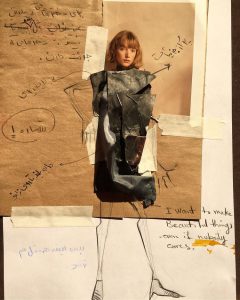 |
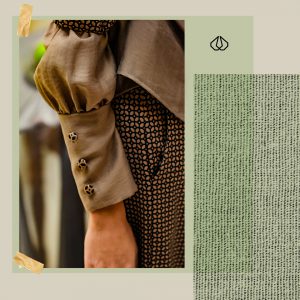 |
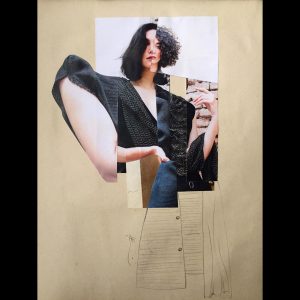 |


